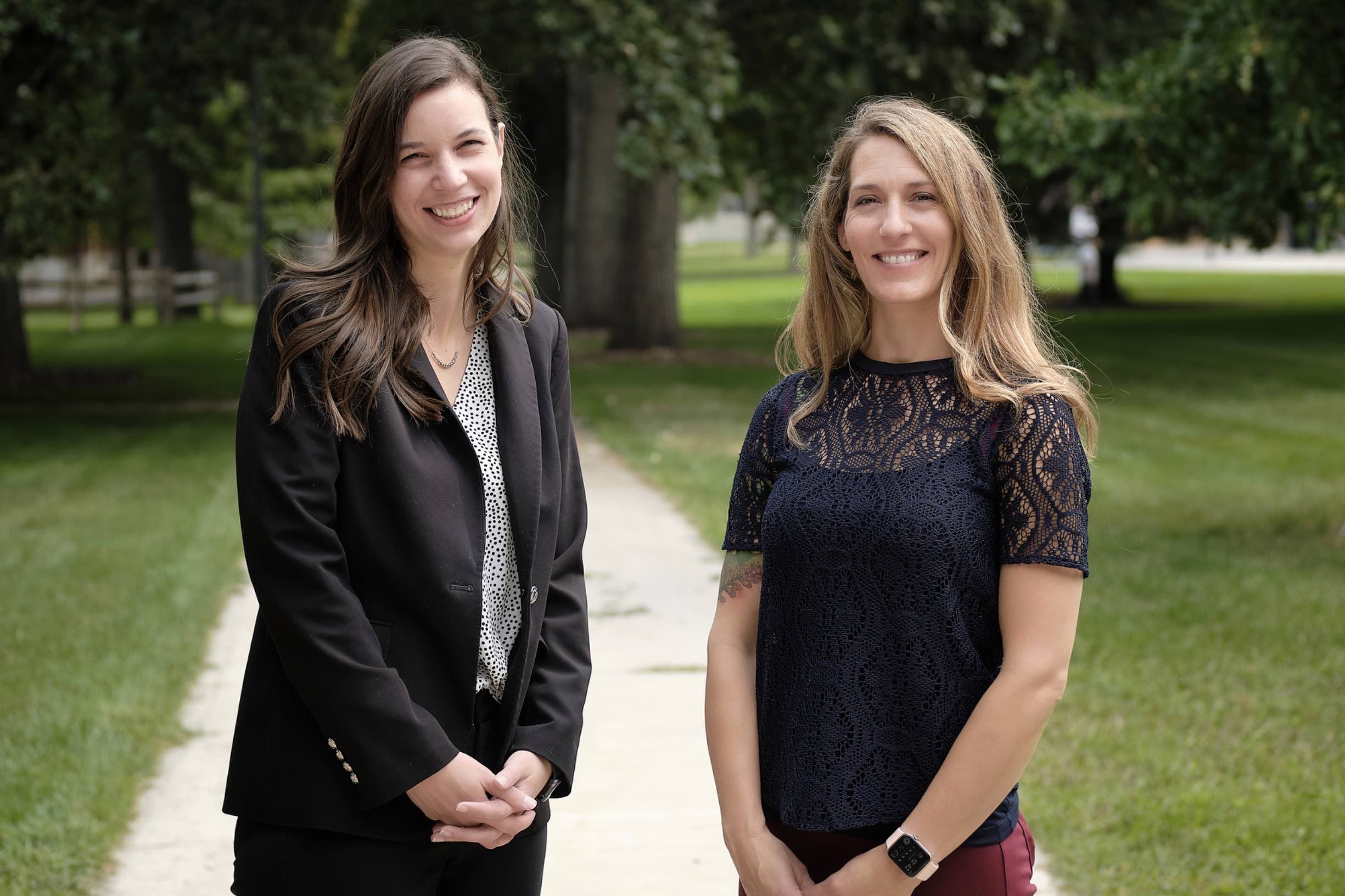By Anne Cantrell MSU NEWS SERVICE
BOZEMAN — A new four-year, $1.9 million grant will enable a team of collaborators at Montana State University and the University of Montana to continue a program that trains students to better serve individuals with mental health care needs.
The grant, from the U.S. Health Resources and Services Administration, will continue funding the Behavioral Health Workforce Education and Training Program. Known as BHWET-West, the program is administered by both MSU and UM and focuses on meeting mental health care needs in western Montana, particularly those of children, adolescents and youth.
“Montana has a significant general need for mental health care, as well as a specific need for mental health care for children, adolescents and young adults,” said Rebecca Pogoda, clinical instructor with the MSU College of Nursing’s Bozeman campus and head of the college’s psychiatric mental health nurse practitioner program. “A goal of this program is to provide additional training opportunities for students so that they are well-prepared for this work.”
Over the four years of the grant, the program will fund 72 MSU and UM graduate students to deliver and integrate professional services into existing institutions, agencies and clinics. Most of the funds will go directly to student stipends.
“Although the state has many hard-working, effective mental health professionals working with our youth, there simply are not enough of them,” said Mary-Ann Sontag Bowman, a UM social work associate professor and program director/co-principal investigator for the grant. “This project funds the placement of graduate students in agencies and organizations that serve children, adolescents and transitional-age youth, expanding the capacity of organizations to meet immediate needs and help build the area’s workforce.”
Since students often practice where they are trained, Sontag Bowman added, placement in these agencies and organizations increases the likelihood of these future professionals staying in those communities.
Participating students in BHWET-West are pursuing careers as psychiatric mental health nurse practitioners, clinical psychologists, licensed social workers or licensed professional counselors. Psychiatric mental health nurse practitioner students are enrolled in the Doctor of Nursing Practice program in MSU’s College of Nursing, psychology students are enrolled in a doctoral program in psychology at UM, social work students are enrolled in UM’s master’s program in social work, and counseling students are enrolled in UM’s master’s program in clinical mental health counseling.
Pogoda emphasized that students participating in the program receive training specifically geared toward working with young people, both in the form of coursework and monthly interprofessional meetings where related topics are discussed.
“A goal of this program is to provide training and experiences so that students who graduate from these programs will be comfortable working with these populations and, in fact, want to work with these populations,” Pogoda said.
The program also provides rich opportunities for interprofessional education and collaboration, she said.
“Learning about integrated care and interprofessional education is an important part of this grant,” Pogoda said. “It’s designed to give students experiences working with, say, a therapist, a primary care provider, a psychiatrist and a social worker, who often all work together with this population.”
Sarah Shannon, dean of the MSU College of Nursing, said increasing the mental health workforce is a top priority for Montana.
“MSU College of Nursing is proud to continue our partnership with the University of Montana in this pressing area,” Shannon said. “The BHWET-West program has been a national leader in offering students an interprofessional experience in behavioral health in a rural state. We know that Montana consistently ranks among worst states for suicide. We are committed to ensuring that children, teens and adults in Montana have access to help when they need it most.”
Ultimately, the program aims to help meet the mental health care needs of people in western Montana.
“The highlight of this grant is it allows MSU and UM to create a workforce for Montanans,” Pogoda said. “We’re training students to work in Montana, and to work with youth.”
In addition to Pogoda and Sontag Bowman, other project collaborators include co-principal investigators Tracy Hellem, associate professor with the MSU College of Nursing’s Missoula campus; Jayna Mumbauer-Pisano, assistant professor, UM Department of Counseling; and Greg Machek, professor, UM Department of Psychology. Consultants include Bryan Cochran, professor, UM Department of Psychology; and Holly Schleicher, former UM director of integrated behavioral health.
The grant complements a second four-year grant recently awarded to the MSU College of Nursing that aims to help address a shortage of mental health providers in eastern Montana, particularly in areas of low population and high geographic remoteness. That program will provide training opportunities and financial support for students working to become psychiatric mental health nurse practitioners, mental health counselors or psychiatrists.
The MSU College of Nursing educates students on its five campuses to be professional nurses capable of working in a variety of settings. It is the largest supplier of Bachelor of Science-prepared nurses in Montana. It is also Montana’s only public provider of graduate nursing education and offers a Master of Nursing degree focused on rural clinical nurse leadership and a Doctor of Nursing Practice program that prepares students for certification as family nurse practitioners or psychiatric mental health nurse practitioners. More information about the MSU College of Nursing is available at montana.edu/nursing/.
Contact: Tracy Hellem, associate professor, MSU College of Nursing, Missoula campus, tracy.hellem1@montana.edu or 406-243-2110; or Rebecca Pogoda, clinical instructor, MSU College of Nursing, Bozeman campus, Rebecca.pogoda@montana.edu













